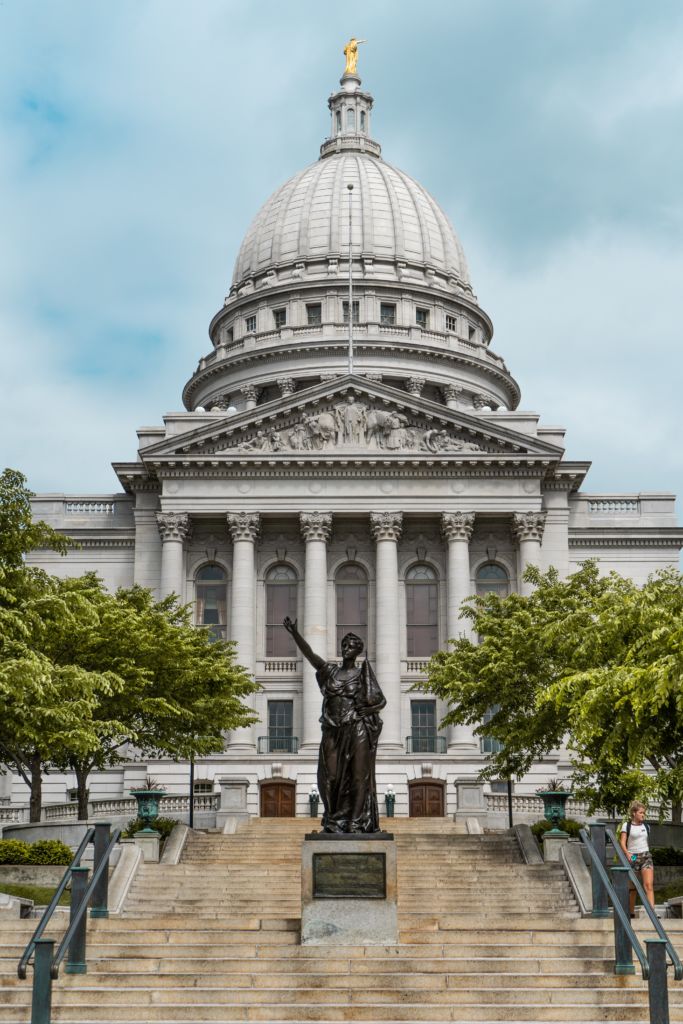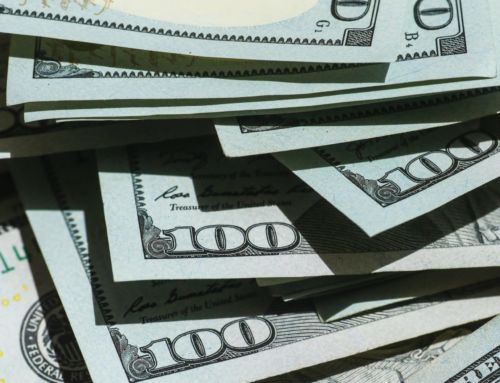September 20th, 2022
TOPIC: Student loan forgiveness
This guide will educate you on the various states taxing you for Biden’s federal loan forgiveness.
If you like guides like this, feel free to follow us on social media and subscribe to our email list to get updates on when a new blog drops!
Why Am I Being Taxed For Student Loans Forgiven?
On August 24th, 2022, Biden announced that he would forgive $10,000 to $20,000 in federal student loans.
If you make less than $125,000 annually, you can have $10,000 forgiven in federal student loans.
If you received a Pell grant, you could have up to $20,000 in federal student loans forgiven.
Yet, depending on your state, you might be required to pay taxes on the money received for those loans.
The IRS normally sees student loan forgiveness as taxable earnings, and some states feel the same way.
The states taxing you for debts forgiven view the money you received from the government as income.
That means you could end up paying state income tax on $10,000 or $20,000 you received from the government.
That is unless they change their laws to conform with the new federal laws on student loan forgiveness.
Will I Have To Pay Back The Government Too?
No, you will not have to pay any federal taxes on these loans forgiven.
The American rescue plan of 2021 made student loan forgiveness tax-free through 2025.
This law still applies to Biden’s fed loan forgiveness. However, states can have their own legislation that differs from the government.
That’s why some student loan borrowers will still pay state income taxes on their loans forgiven.
What States Are Taxing Forgiven Student Loans?
Most states have already declared they will not tax students on federal student loans forgiven.
So if your state does not make it on this list (or the list below), you will not have to pay state taxes on your forgiven loans.
Minnesota

Photo by Daniel Weiss
Minnesota is one of those states that could end up taxing their student loan borrowers for having their student loans forgiven.
This is because the current state tax laws do not conform with the new American rescue plan.
That said, many state lawmakers have expressed interest in waiving taxes on student debt.
“We often try to conform to the federal tax code for ease and convenience of taxpayers. It’s something we can take a look at when we are back in session.” -Senate Majority Leader Jeremy Miller
So if you live in Minnesota, you might still be in luck with not having to pay any taxes on your loans forgiven.
However, we will not know for sure until the legislative body returns to make a vote in January.
Note: It could happen sooner if there’s a special session this year.
Wisconsin

Photo by Connor Betts
Wisconsin is another state that considers tax-forgiven debt as income.
This is because Wisconsin has not updated its tax law to be on par with the federal government.
Just like Minnesota, Wisconsin could change its stance on this tax law. Still, the legislature would have to meet for that, which probably won’t happen until January.
However, unlike Minnesota, we haven’t heard anything from Wisconsin’s state politicians that hint at removing this tax on forgiven loans.
Mississippi

Photo by Justin Wilkens
Mississippi has confirmed that it will tax student loan debt borrowers on any loans paid for by the government.
This is because Mississippi’s state tax code differs from the federal government.
Now the state did aid businesses from having to pay taxes on their PPP loans. In fact, they made the PPP loans tax deductible.
However, no lawmaker in Mississippi has expressed interest in giving the same favorable treatment to student loan borrowers.
Indiana

Photo by Owen Rupp
Indiana is another state that has confirmed that it will tax student loan borrowers on the money they receive.
The state even went so far as to say that some loan borrowers will have to pay state taxes and local county taxes.
North Carolina

As of right now, student loans forgiven are taxable. So borrowers will have to pay taxes on the 10k or 20k received.
However, like Minnesota, North Carolina might end up changing their stance on taxing student loans forgiven.
North Carolina’s Governor Roy Cooper asked Republican legislators to waive state income taxes on these loans.
He released a statement saying:
“Legislative leaders need to find a solution that treats student loan forgiveness the same way they handled the PPP loan forgiveness that many of them received”- Governor Roy Cooper
Seeing how the governor wants to remove taxes on this debt forgiveness, there is a good chance you might not have to pay taxes after all.
We will have to wait and see what happens come January.
What States Are Still Undecided?
There are still some states that are undecided on if they are going to tax these forgiven loans or not.
Three states have not released a statement on whether they will tax this debt forgiveness.
These states are California, Arkansas, and Wisconsin.
Wisconsin has expressed interest in waiving the tax to prevent penalizing their taxpayers for having their debts forgiven.
California said they would waive the tax depending on how the department of education administers the program.
Arkansas has not released a statement yet because they want to wait until their legislative session is complete, which will occur in early January.
How Much Will I Be Taxed?
An Analyst from the Tax Policy Center stated in an email that being forced to pay taxes on $10,000 or $20,000 income could equate to a tax bill well into the four figures.
However, how much you will have to pay in taxes will vary per person.
How much you will end up paying will depend on things like your:
- Annual income
- Business & personal expenses
- Qualifying tax credits
- Roll over credits from previous years.
To Summarize
Depending on where you live, you might still be held responsible for paying taxes on the 10k-20k received.
Most states have already declared that they will not tax taxpayers on their loans forgiven.
Moreover, those few states that are taxing students could change their minds in January 2023.
Do You Enjoy Reading Blog Post Like This?
We created a blog explaining the difference between tax deductions and tax credits.
If you haven’t read that blog, click the link below to dig in!





